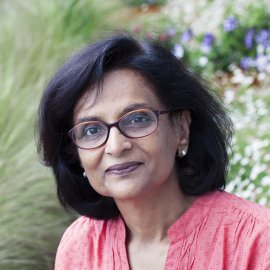History, Jawaharlal Nehru University, India

Avril à Juin 2016
Radhika Singha teaches modern Indian history at the Centre for Historical Studies, Jawaharlal Nehru University, New Delhi. She did her Ph.D from Cambridge University on the social history of crime and criminal law in colonial India. Since then she has developed an interest in identification practices and protocols, and borders and border–crossing, in the context of colonial governmentality. She has also been researching towards a book on the mobilisation of human resources from India for World War One. She has widely wrote on identification practices, colonial policing and surveillance, law and infrastructural power, colonial travel documents, and non-combatant labour in World War One.
"Home-coming: lessons of the European Great War for the Indian soldier and labourer"
Radhika Singha is drafting a book on Indian non-combatant labour in World War One. She proposes to use French visual and newspaper archives to extend her work on the second major flow of South Asian personnel to the France in World War One - namely the 50,000 Indian labourers who began to arrive from June 1917, to be followed by the horse and mule drivers sent to replace white personnel in ammunition and supply columns. More broadly she hopes to find new chronological, spatial and thematic frames to assess the position of India ‘in’ the Great War instead of treating it as an external phenomenon to which India ‘contributed’. She proposes to use her three month fellowship to draft a concluding chapter to her book which will explore the different positions from which the “post-war’ was conceptualized around the figure of the returning Indian soldier and labourer. To knit the war-years in India to their tumultous after-math in an integrated way she wants to focus on ‘the returnee’ as subject and object of propaganda throughout the whole.arduous length of this conflict and not only at the concentrated phase of de-mobilisation. She hopes thereby to understand how war mobilisation expanded the frame of political activity, built in new repressive mechanisms, and significantly changed the realm of colonial governmentality.
2015. « Punished by surveillance: policing dangerousness in colonial India, 1872-1918 », Modern Asian Studies, Vol. 49, Iss. 2, pp 241-269.
2013. « The Great War and a ‘proper’ passport for the colony: border- crossing in British India, c.1882-1922 », Indian Economic and Social History Review, Vol. 50, No. 3, pp. 289-315.
2011. « The Recruiter’s Eye on “The Primitive”: To France -and Back- in the Indian Labour Corps, 1917-18 », in Other Fronts, Other Combatants. Competing Histories of the First World War, J. E. Kitchen, A. Miller and L. Rowe (eds.), Newcastle upon Tyne: Cambridge Scholar Series.
2000. « Settle, mobilise, verify: identification practices in colonial India », Studies in History, Vol. 16, No. 2, pp. 151-198.
1998. A Despotism of Law: Crime and Criminal Justice in Colonial India, Delhi: Oxford University Press.